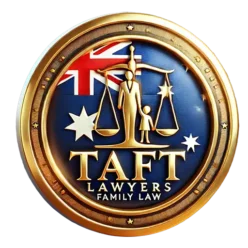Couples planning to marry in Australia should consider several legal aspects to ensure their marriage is valid and that they understand their rights and responsibilities. Here are key legal concerns to keep in mind:
- 1. Marriage Eligibility
- 2. Notice of Intended Marriage
- 3. Marriage Celebrant and Ceremony Requirements
- 4. Legal Documentation
- 5. Prenuptial Agreements
- 6. Rights and Responsibilities After Marriage
- 7. Name Change
- 8. Visa and Immigration Considerations
- 9. Religious and Cultural Considerations
- 10. Same Sex Marriage
- 11. Last Words
1. Marriage Eligibility
- Both parties must be at least 18 years old (exceptions exist for 16- or 17-year-olds with a court order).
- Both must provide free and full consent to the marriage.
- Neither person can already be married to someone else.
- The couple must not be in a prohibited relationship (e.g., direct family members such as siblings or parent-child).
Both parties must be legally eligible to marry under Australian law, meaning they cannot already be in a valid marriage. If one partner has been previously married, they must provide evidence of a legally recognized divorce or annulment before the new marriage can proceed. Failing to do so can result in legal consequences, including the marriage being declared invalid.
Additionally, Australian law prohibits marriage between close family members, including siblings (full or half), parents and children, and grandparents and grandchildren. However, first cousins are legally allowed to marry in Australia. It’s important to be aware of these restrictions to avoid legal complications.
2. Notice of Intended Marriage (NOIM)
- Couples must complete and lodge a Notice of Intended Marriage (NOIM) form with an authorized celebrant at least one month before the wedding but no more than 18 months in advance.
- The NOIM must be signed in the presence of an authorized witness, such as a celebrant, Justice of the Peace, or legal practitioner.
The NOIM form is a mandatory legal requirement, and it must be lodged at least one month before the wedding date with an authorized celebrant. If the form is not submitted in time, the marriage cannot legally proceed on the planned date. The NOIM remains valid for 18 months, so couples who need to delay their ceremony can still use the original notice within this timeframe.
In special circumstances, couples can apply for a Shortening of Time through a Prescribed Authority if they have compelling reasons such as serious illness, travel, or work commitments. However, approval is not guaranteed and is assessed case by case.
3. Marriage Celebrant and Ceremony Requirements
- The marriage must be conducted by an authorized celebrant (civil or religious).
- The ceremony must include legal vows as prescribed under Australian law.
- Two witnesses (18 years or older) must be present during the ceremony.
Australian marriages must be officiated by an authorized celebrant, who can be a civil celebrant, religious celebrant, or a state-authorized official. Civil celebrants are often preferred for non-religious ceremonies, while religious celebrants perform weddings according to specific faith traditions. The celebrant must ensure the marriage complies with legal requirements.
During the ceremony, couples must recite legally recognized marriage vows and sign the Marriage Certificate in the presence of two witnesses who are at least 18 years old. The marriage celebrant is responsible for registering the marriage with the Registry of Births, Deaths and Marriages in the state or territory where the wedding takes place.
4. Legal Documentation
- Proof of identity and age (passport or birth certificate) is required.
- If previously married, proof of divorce (Divorce Order) or death certificate of a deceased spouse must be provided.
Couples must provide proof of identity, age, and nationality, typically in the form of a passport or birth certificate. If documents are not in English, an official NAATI-certified translation is required.
If either party has previously been married, they must provide a divorce decree (Divorce Order) issued by an Australian court or a legally recognized death certificate if their former spouse has passed away. Without these documents, the marriage cannot be legally registered.
5. Prenuptial Agreements (Binding Financial Agreements – BFAs)
- Couples may consider a Binding Financial Agreement (BFA) before or during the marriage to set out financial arrangements in case of separation.
- BFAs must comply with Australian family law and require independent legal advice for both parties.
A Binding Financial Agreement (BFA) allows couples to determine how their assets and financial responsibilities will be managed before, during, or after marriage. BFAs are legally enforceable under the Family Law Act 1975 and can help protect assets in the event of separation or divorce.
Each partner must receive independent legal advice before signing a BFA to ensure they understand the terms and consequences. If one party later challenges the agreement in court, the lack of proper legal advice can result in the BFA being declared invalid.
6. Rights and Responsibilities After Marriage
- Marriage affects legal rights related to property, finances, inheritance, and children.
- Spouses have financial responsibilities toward each other, even in separation.
- If children are involved, both parents have legal obligations for their care and support.
Marriage affects various legal rights, including inheritance, property ownership, tax obligations, and healthcare decision-making. For example, in case of serious illness, spouses have the legal right to make medical decisions on behalf of their partner.
If a couple separates, Australian family law considers financial contributions, non-financial contributions (such as homemaking), and future needs when determining property settlement. Even if one partner was not working, they may still have a claim on shared assets.
7. Name Change
- A person can take their spouse’s surname after marriage but must update their identification and legal documents accordingly.
- A legal name change requires a marriage certificate issued by the Registry of Births, Deaths and Marriages.
While taking a spouse’s surname is common, there is no legal requirement to do so in Australia. A spouse who chooses to change their surname must update identification documents such as their driver’s license, passport, and Medicare card.
If a partner wishes to combine or hyphenate their last name with their spouse’s surname, they may need to apply for a formal name change through the Registry of Births, Deaths and Marriages.
8. Visa and Immigration Considerations
- If one partner is a non-Australian citizen, they may apply for a Partner Visa to stay in Australia.
- The Australian government assesses partner visa applications based on the genuineness of the relationship.
- Fraudulent marriages for immigration purposes are illegal and can lead to visa cancellation or legal penalties.
If one partner is not an Australian citizen or permanent resident, they may apply for a Partner Visa (Subclass 820/801 for onshore applicants or Subclass 309/100 for offshore applicants) to stay in the country. These visas require substantial evidence of a genuine and ongoing relationship, such as shared finances, joint leases, and social commitments.
The Department of Home Affairs strictly investigates marriages suspected of being arranged solely for immigration benefits. Providing false or misleading information can result in visa refusal, deportation, and legal penalties.
9. Religious and Cultural Considerations
- Religious marriages must still meet Australian legal marriage requirements to be recognized.
- Marriages performed overseas may need to be registered in Australia, depending on the country where the marriage took place.
While religious wedding ceremonies are respected in Australia, they must still comply with Australian marriage laws to be legally recognized. Some religious marriages performed overseas may not be automatically recognized in Australia unless they meet legal criteria.
If a couple wants their religious marriage to be legally recognized, they must ensure that their officiant is a registered marriage celebrant or complete a separate civil marriage registration.
10. Same-Sex Marriage
Same-sex marriage has been legal in Australia since December 2017, and same-sex couples have the same legal rights and obligations as opposite-sex couples.
Australia legalized same-sex marriage on December 9, 2017, meaning same-sex couples now have the same legal rights and obligations as heterosexual couples. This includes rights related to marriage, inheritance, property settlements, and parenting responsibilities.
Same-sex couples who were previously married overseas before the law changed now have their marriages automatically recognized in Australia without the need for re-registration.
11. Last Words
Marriage is a significant legal commitment in Australia, and couples must be fully aware of the legal implications before tying the knot. Understanding eligibility requirements, lodging the Notice of Intended Marriage (NOIM) on time, and ensuring all necessary documents are in order are essential steps to ensure a legally recognized union.
Additionally, considering Binding Financial Agreements (BFAs) can help couples protect their financial interests and clarify asset distribution in the event of separation. While marriage provides various legal benefits, it also comes with responsibilities, including financial and caregiving obligations that extend beyond the wedding ceremony.
For couples where one partner is a non-Australian citizen, immigration considerations are crucial. The Partner Visa process requires extensive documentation to prove the genuineness of the relationship, and failure to meet these requirements can result in visa rejection.
Moreover, religious or cultural ceremonies must comply with Australian marriage laws to be legally valid. Same-sex couples now enjoy equal legal rights under Australian law, ensuring that all married couples, regardless of gender, have the same legal protections and obligations.
Ultimately, preparing for marriage in Australia involves more than just planning a wedding; it requires a solid understanding of the legal framework governing relationships. Seeking legal advice where necessary, ensuring compliance with all requirements, and discussing financial and future obligations can help couples enter marriage with confidence and security.
Whether it’s planning for inheritance rights, financial security, or visa requirements, being well-informed allows couples to build a strong foundation for their future together.

